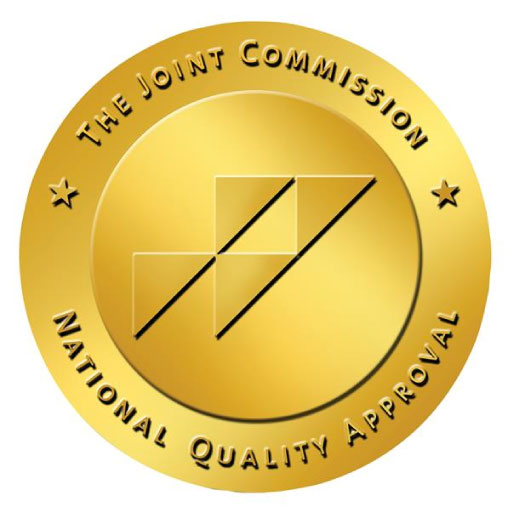Everyone experiences panic at some point or another. Panic is a natural reaction to intense danger or emergency situations, and can even help in some ways by increasing our sensory perception and prompting us to run away from harm. Unfortunately, panic can also cause us to experience physical symptoms such as dizziness and shortness of breath, as well as mental distress that may cause us to act irrationally. When panic attacks happen chronically in response to situations that do not pose an immediate threat, they might be a sign of panic disorder. Panic disorder, or anxiety disorder, can create a great deal of distress by inhibiting a person’s ability to participate in social situations and complete daily activities. Panic attacks can occur suddenly for a variety of reasons, and may feel to the individual as if they are having a heart attack or stroke. The best way to manage panic disorder is to seek professional mental health treatment, but there are certain recommended strategies for coping with panic attacks should they continue to occur before or during treatment.
We help people with addictions and substance use disorders recover. Get mindfulness training and learn the 12 Steps for deeper healing.
Here are 4 Strategies for Coping with Panic Attacks
1. Deep Breathing
It can be difficult to hear someone tell you to breathe deeply when you are already in the midst of a full-blown panic attack, but breathing techniques can truly help if you take the time to train yourself in advance. Long, deep breaths help to slow heart rate, combat lightheadedness, and return you to the present moment. By focusing on your breath, you can temporarily take your mind off whatever it is that is causing you to panic and remind yourself that your body is physically safe. You can plan for this technique by beginning a meditation practice at home, or taking a class on meditative breathing. The more tools you equip yourself with beforehand, the more capable you will be of managing panic when it arises.
2. Know the Signs
One of the biggest obstacles to successfully managing panic attacks is that the individual experiencing one may feel as if something physically dire is happening to them. Many emergency room visits and 911 calls are a result of someone having a panic attack that believes they might be dying. Panic attacks do indeed cause a wide range of frightening physical symptoms including heart palpations and lightheadedness. It can feel as if the room is closing in on you and there is a general sense of impending doom. While all these signs can be disturbing, recognizing the signs of a panic attack can prevent you from making the situation worse by believing something terrible is happening to you. With enough knowledge and preparation, you can remind yourself that a panic attack is temporary just as it begins, and keep the attack from spiraling out of control.
3. Find a Quiet Place to Rest
If you feel a panic attack coming on, one of the best steps you can take to prevent escalation is to find a quiet place to sit and close your eyes while you allow the attack to pass. Excess stimuli such as bright lights and crowded spaces can exacerbate symptoms of a panic attack. Additionally, finding a place to center yourself can help you focus on your breathing and remain as calm as possible. If you find that your panic attacks are made worse by conversation or being talked to at all, let your loved ones know to respect your space and solitude when you feel an attack coming on. Watching someone have a panic attack can be frightening and it is natural to want to help, but you can prevent unwanted intrusions and chatter by educating your loved ones on your coping process.
4. Carry an Object to Focus On
For some people that experience panic attacks, it can be helpful to always keep a small object on hand that works as a grounding mechanism when an attack begins. For example, you may wear a beaded bracelet that you can hold and manipulate during an attack. By focusing on the details of the object, (feeling the cool temperature of the beads, counting how many there are, listening to the sound they make as you move them in your hand), you can anchor yourself to the present moment and distract your mind from the attack. If you don’t have your preferred object on hand, pick any inanimate object in the room and do the same exercise, consciously noting every detail perceived with as many senses as possible. This exercise can take a bit of effort at first, but you may notice your panic symptoms begin to subside if you stick to it.
Panic disorder is one of many mental illnesses that can lead to a poor quality of life if left untreated. Many people suffering from anxiety, panic, depression and other mental health issues turn to substances to cope with their symptoms. If you or someone you love is struggling with addiction and mental illness, a quality treatment program can provide you with strategies for maintaining long-term sobriety. At Renewal Lodge by Burning Tree, you will find a team of compassionate, knowledgeable professionals ready to coach each client through the 12-Steps and beyond. By structuring treatment to fit individual needs, including the identification of co-occurring disorders, Burning Tree facilitates an environment of healing and holistic wellness. Here, our clients tackle their addictions head-on and harness the power to restructure their lives through high accountability and life skills that foster lasting sobriety. We specialize in treatment for the chronic relapser, and believe that with the right tools, you can put an end to the cycle of addiction.






